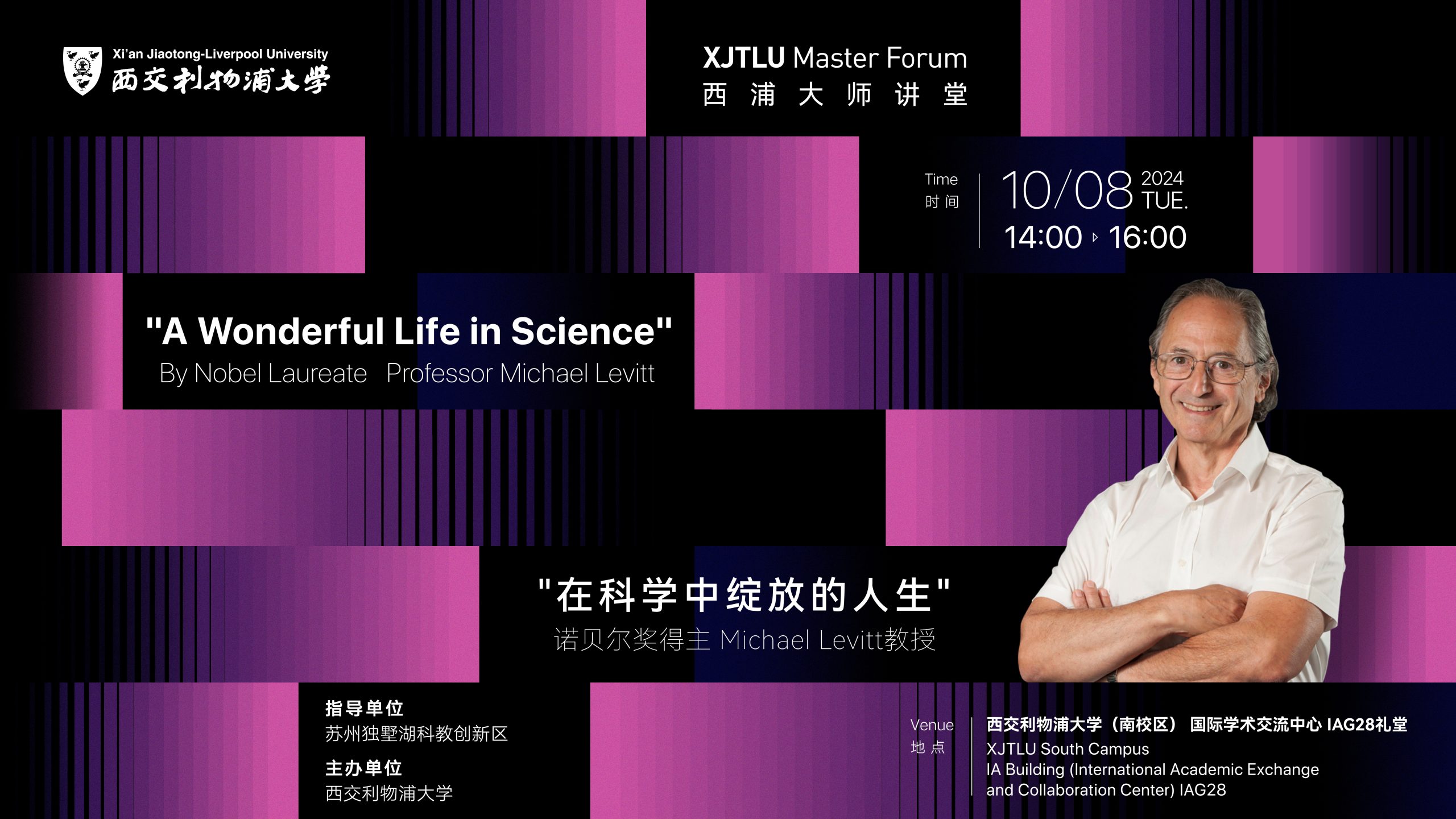02 Oct 2024
Xi’an Jiaotong-Liverpool University (XJTLU) will host a talk by Nobel laureate, Professor Michael Levitt on 8 October, IAG28 amphitheater (6am GMT / 7am BST / 2pm CST; check your local time here). He will deliver the talk, “A Wonderful Life in Science” both onsite and to a worldwide public audience online.

Professor Levitt, a computational biologist, is the Robert W. and Vivian K. Cahill Professor of Cancer Research at Stanford University. His pioneering work in developing computer algorithms to model and analyse biological molecules has substantially impacted biology, with important implications for human health. In 2013, he was awarded the Nobel Prize in Chemistry for his work, along with two other co-winners.
“I want young people to appreciate the glorious nature of science both basic and applied,” Professor Levitt said, ahead of his talk. “They should see that research is done by normal people often mentored and inspired by others. They should also feel and appreciate the pleasures of discovery.”
Professor Levitt is a member of the National Academy of Sciences, the American Academy of Arts and Sciences, and the Royal Society of London. He was one of the first scientists to develop computer simulations that help researchers understand and predict the motion of atoms and molecules in complex biological systems. His research led to a new understanding of protein structures and their characteristics.
Proteins are molecules made up of folded amino acid chains. They play many roles in the body and how they are structured determines the protein molecules’ functions. Being able to predict protein structures and dynamics is important for studying disease mutations and discovering novel drug treatments to improve human health.
In recent years, Professor Levitt has witnessed the dramatic changes AI can bring to computational biology. These include Google DeepMind’s AI system, AlphaFold, which can reliably predict a protein’s 3D structure from its amino acids without time-consuming and costly experiments.
“This specialised application combined over 60 years of published academic research with massive industrial-scale computer power to provide a very useful tool,” Professor Levitt said. “In the future, I expect there to be many such tools relying on a combination of data, physical laws and efficient computer codes."
Professor Levitt promises to give an inspiring talk about his fascinating journey starting as a young scientist to his present day world acclaim.
To join the online livestream, you could scan the QR code:

By Tamara Kaup
02 Oct 2024








